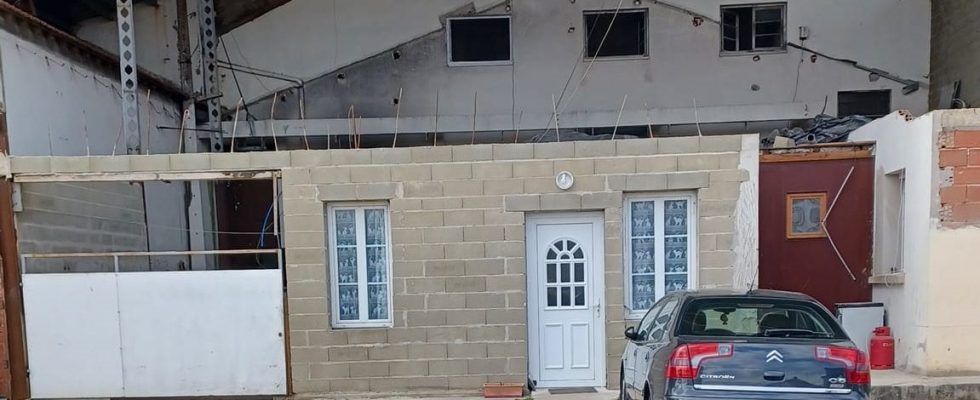She is angry with this boss of a wine company who promised her a monthly salary of 1,650 euros and the hope of a better life. In September 2022, a 33-year-old Moroccan woman came to France to work in the vineyards, following the advice of her cousin who introduced her to a recruiter. She found herself a victim of human trafficking practices. “I wanted to live better,” explains simply to 20 minutes the young woman, who wishes to remain anonymous.
Housed in a barracks for 150 euros per month
Far from home, she finds herself paying 150 euros per month for the right to occupy a makeshift building, on the site of the cooperative cellar in Lamothe-Montravel, a commune in Dordogne bordering Gironde. Eight other men, also recruited as seasonal workers, are housed in another barracks. They share showers and toilets in poor condition.
“In addition to working in the vineyards all day in Libourne, Saint-Emilionnais and Monbazillac, I cleaned the house,” says the thirty-year-old. And over six months of work, only one salary is paid to him in the amount of 1,500 euros. After a month, she already realizes that something is wrong, but she doesn’t know where to turn and the boss promises to pay her soon. It was finally in February 2023, supported by a collective of individuals informed of the facts, that she stopped working for nothing.
Accompanied by the association fighting against serious forms of exploitation “Ruelle”, she filed a complaint and proceedings for the nine victims of this case were opened for human trafficking, with the Bergerac public prosecutor’s office. She confides today that she was afraid of this boss, and was “very angry” but feels better. She works and takes intensive French courses, clinging to the hope of a “good life”.
Ruelle, an association that defends victims
The employer prosecuted for trafficking explained to the thirty-year-old that she must consider herself “lucky” because she had not paid a right of passage to come and work in France. It is indeed quite common for “crooked agricultural service providers to sell agricultural contracts to migrant workers of Moroccan origin, for 12,000 to 15,000 euros, and thank them quickly afterwards”, explains Bénédicte Lavaud-Legendre, lawyer, researcher at the CNRS and president of Ruelle.
These workers are promised three years of full-time work but in fact, under the seasonal residence permit, they cannot stay more than six months on French territory, without traveling back and forth to their country of origin. “At the rate of 10 to 15 people once or twice a year, even if intermediaries must also be paid in Morocco, we see that these are extremely lucrative practices,” underlines the president of Ruelle.
The association supports victims, intensively during the first three months but also over the long term. “The exploiters are people who know how to appear to their victims as very protective,” explains Bénédicte Lavaud-Legendre and the victim must be reassured about the conditions of their care by the authorities so that they agree to be helped. Like victims of domestic violence, victims of trafficking are sometimes in denial about being victims themselves. “The association supports them to understand what made them vulnerable, to make them less isolated and less dependent,” adds the president. Depending on the case, we support the return to the country or the process of applying for regularization, but we also help them create connections in the country of destination in order to prevent them from falling back into other forms of exploitation. »
Many Moroccan and Romanian victims
If nationals of different countries are affected by these practices, recent legal proceedings mainly highlight Moroccan and Romanian victims, for unpaid work in the vineyards. “Moroccans have a very strong desire to migrate, they often sell land to leave and their families make sacrifices,” explains Bénédicte Lavaud-Legendre. These are young men who leave without family ties, without children and who can have a job in their country of origin, but they prefer to leave it to aspire to a better life in Europe. Romanians are often wandering people who have no home in Romania. »
As the NGO Médecins du Monde notes with its program which has just been launched in Médoc, it is particularly difficult to get in touch with Romanian workers. “They are closely chaperoned,” points out Jean-Luc Taris, responsible for seasonal workers at Médecins du Monde. When we approach, we quickly ask them to get back on the bus. »
It is very difficult to have an idea of the real extent of trafficking in the Gironde wine sector because only those cases that lead to legal proceedings are known. This is the tip of the iceberg even if, based on her research at the CNRS, Bénédicte Lavaud-Legendre believes that the phenomenon “has been more visible since 2018.” Prosecutors are increasingly using the qualification of “trafficking”, which makes workers more inclined to denounce the acts of which they are victims. More cases could then reach the courts.

